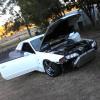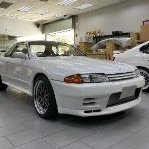My Grand Plan For Decent Driver Training In Sa
Announcements
-
Similar Content
-
Latest Posts
-
Christmas came early this year … titanium piping ready for installation … IMG_5349.mov
-
By drifter17a · Posted
I might have found it, it was the inlet clip from resorviour leaking bur unsure if that is because I did not put the clamp back on correctly ( fully on the groove) or it had moved/ had always being like that i moved the clamp and now doing more tests i pressurised the system to 30 psi ( hydrulic system can take way more by doing little search around 150-400psi) and seen fluid was pushed out from inlet clamp. See my ingenious way of doing now doing vacumme test. -
If doing that ^, I'd take the idle up valve out and plug the hole in the pump.
-






Recommended Posts
Create an account or sign in to comment
You need to be a member in order to leave a comment
Create an account
Sign up for a new account in our community. It's easy!
Register a new accountSign in
Already have an account? Sign in here.
Sign In Now